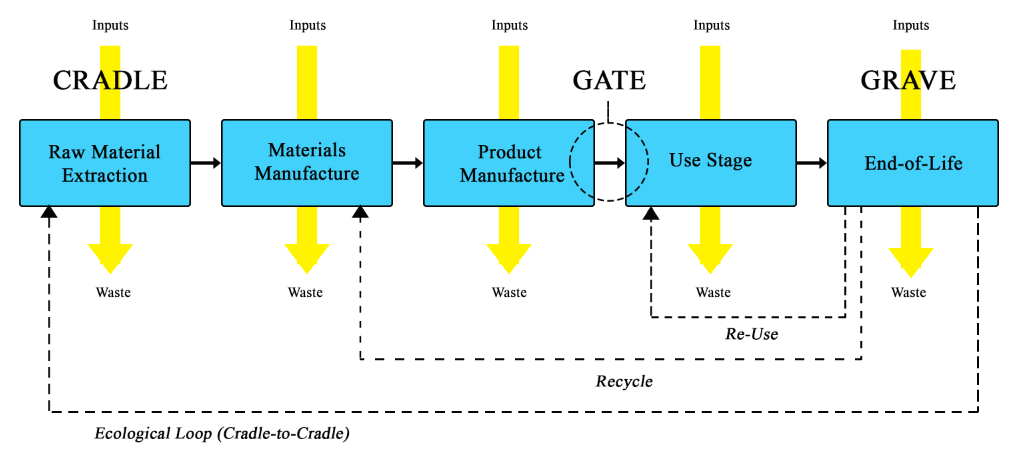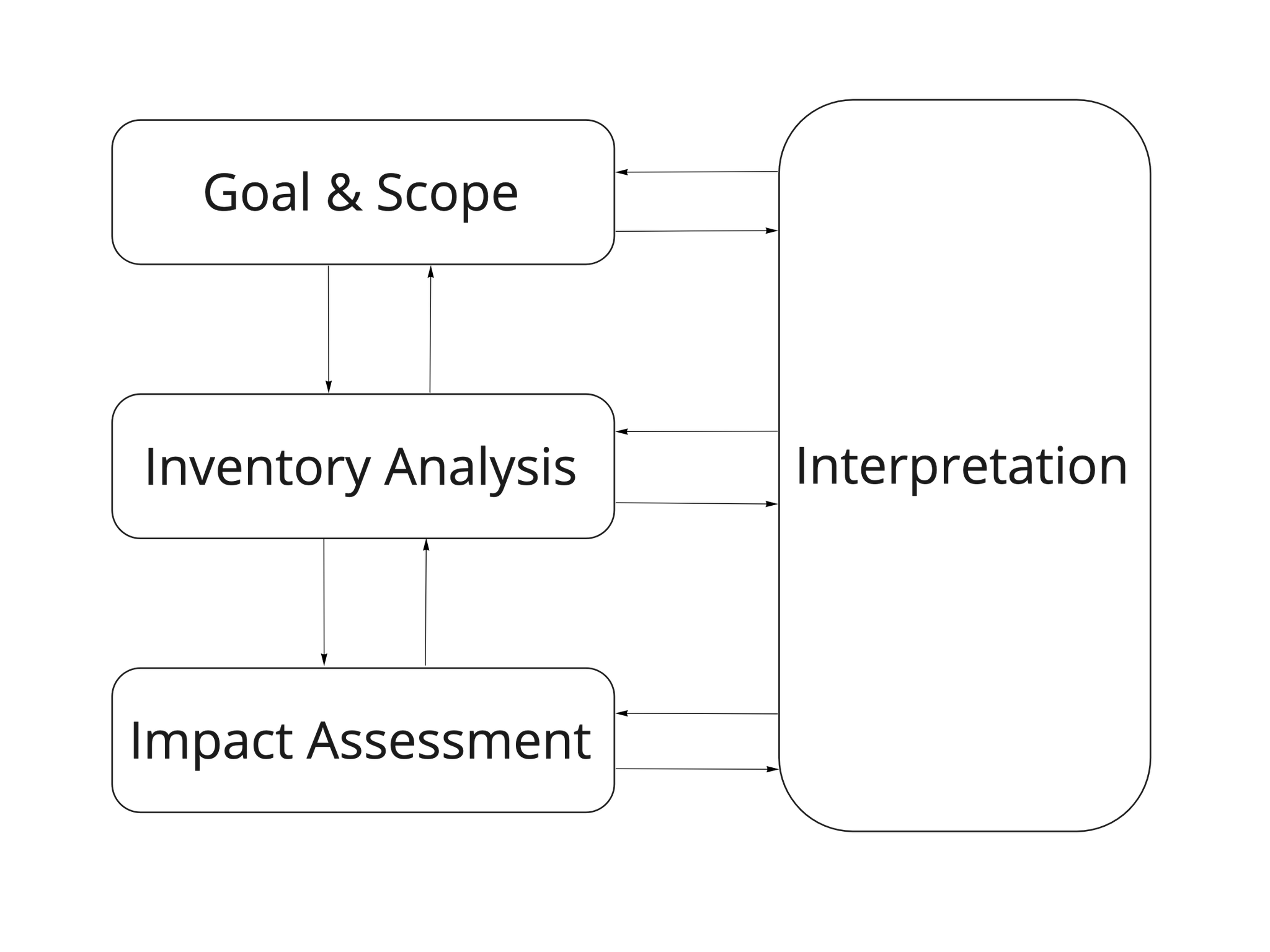Why are LCA’s relevant to the digital infrastructure industry?
Life Cycle Assessments are adopted broadly in the sustainability realm. For many sectors, ranging from building to farming to the energy sector, this is already applied. However, it has not been applied yet for the digital infrastructure industry. Therefore, efforts to make the industry more sustainable are difficult: we don’t have the data to improve.
Applying methodologies like LCA can give us great insights on the environmental impact of products and services. We believe that to measure is to know: the data used in an LCA can give us what we need to report on our environmental impact, and to improve our products, services, and therefore our businesses.
LCA also allows for comparison between different products and services, and can, for example, help us choose the most sustainable option. While it is a complex methodology, we believe it is also especially applicable to the digital infrastructure sector due to its complexity. It is able to cover many aspects of the value chain. There are standards which are the norms that define an LCA and its requirements. Part of this is a review process, where the results are reviewed by an independent party (see more about the relationship to standardization and labeling below).
”LCA can support the pathway to a more environmentally sustainable digital transformation by pointing out environmental hotspots of ICT, by identifying environmental tradeoffs, by monitoring the environmental impacts of the digital transformation and by showing the sustainability potentials of substituting digital for non-digital technologies with high environmental impacts.” (Itten et al., 2020)
Additional reading on using LCA’s for Digital Transformation
Types of Life Cycle Assessments
Attributional LCA
Answers the question: what part of the global environmental burdens should be assigned to the product or service?
Consequential LCA
What is the impact of the product on the global environmental burdens?

Stages of Life Cycle Assessment
There are 4 stages in carrying out a Life Cycle Assessment:
- Defining goal and scope
- Creating a Life Cycle Inventory
- Gathering all the date, for example by usint existing databases like Ecoinvent
- Doing Life Cycle Impact Assessment
- This can be resource-based or emission-based. There are different methods to do the impact assessment, and it is important to choose the right one for your audience.
- Interpreting the results
LCA Framework

Types of LCA Tools
Life Cycle Assessment Software Tools - Overview - Ecochain
Historically, a Life Cycle Assessment was primarily used for research purposes. It's no surprise that most LCA tools share this background. The first LCA tools were developed within universities. Even today, many tools that help calculate Life Cycle Assessments have strong ties to the academic field.
https://ecochain.com/knowledge/life-cycle-assessment-software-overview-comparison/

Sustainability Reporting
LCA’s make it easier to report on ESG efforts, because if you have your life cycle data, you can report to reporting frameworks and standards like the Greenhouse Gas Protocol, Science Based Targets initiative, and the Global Reporting Initiative. Currently, we do not see companies report the impact of their digital infrastructure in these kinds of
Greenhouse Gas Protocol (GHG Protocol)
GHG Protocol establishes comprehensive global standardized frameworks to measure and manage greenhouse gas (GHG) emissions from private and public sector operations, value chains and mitigation actions. Building on a 20-year partnership between World Resources Institute (WRI) and the World Business Council for Sustainable Development (WBCSD), GHG Protocol works with governments, industry associations, NGOs, businesses and other organizations. (https://ghgprotocol.org/about-us)
Science Based Targets
Science-based targets provide a clearly-defined pathway for companies to reduce greenhouse gas (GHG) emissions, helping prevent the worst impacts of climate change and future-proof business growth. Targets are considered ‘science-based’ if they are in line with what the latest climate science deems necessary to meet the goals of the Paris Agreement – limiting global warming to well-below 2°C above pre-industrial levels and pursuing efforts to limit warming to 1.5°C. (https://sciencebasedtargets.org/how-it-works)
Global Reporting Initiative
The GRI Standards enable any organization – large or small, private or public – to understand and report on their impacts on the economy, environment and people in a comparable and credible way, thereby increasing transparency on their contribution to sustainable development. In addition to reporting companies, the Standards are highly relevant to many stakeholders - including investors, policymakers, capital markets, and civil society. The Standards are designed as an easy-to-use modular set, delivering an inclusive picture of an organization's material topics, their related impacts, and how they are managed. (https://www.globalreporting.org/standards/)
International Organization for Standardization
ISO is an independent, non-governmental international organization with a membership of 167 national standards bodies. Through its members, it brings together experts to share knowledge and develop voluntary, consensus-based, market relevant International Standards that support innovation and provide solutions to global challenges. (https://www.iso.org/about-us.html)
Through ISO 14040 and 14044, LCA’s are standardised and reported.
Certifying and Labeling
Environmental Product Declaration (EPD)
Other initiatives
NegaOctet
Measuring the environmental impact of digital technology - NegaOctet
NegaOctet is a complete repository for assessing and reducing the environmental impacts of digital services.
https://negaoctet.org/en/home/#Negaoctet

